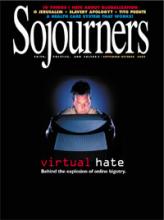When faced with contemporary social justice questions, churches are called to reflection and action based upon their Christian story. The Christian community is necessarily a body politic that is marked by Jesus Christ and is not a community that identifies itself with any particular socio-political philosophy or culture.
When faced with ethical dilemmas, a danger therefore lies in silent submission to activist voices laden with political ideology. A reasonable believer may appropriately feel uncomfortable when "activist" colleagues strain to gain the communal acceptance of their perspective by masking it as the only Christian thing to do. Rather than taking up the issues of the day as social causes, we are called as communities to witness lives of hope and love in Christ.
Broad-based organizing is one way to address ethical issues without falling prey to inaction or divisive activism. Broad-based organizing recreates a public by bringing together a mix of ethnicities, faith communities, and social classesan infrequent achievement in our nation. People respond to this organizing because it does not equate Christianity or any faith tradition with the liberal democratic social system but instead organizes people around common values.
In a society where dominant ethics perspectives have focused mostly on means (rights-talk, for example), this developing model is helping people to discover ends (goods in common). While many activists demands for action on political identity issues often lead to immediate polarization and dissension, broad-based organizing raises up common values and virtues that communities embrace by their faith stories (Christian love of neighbor, for instance).
Read the Full Article
